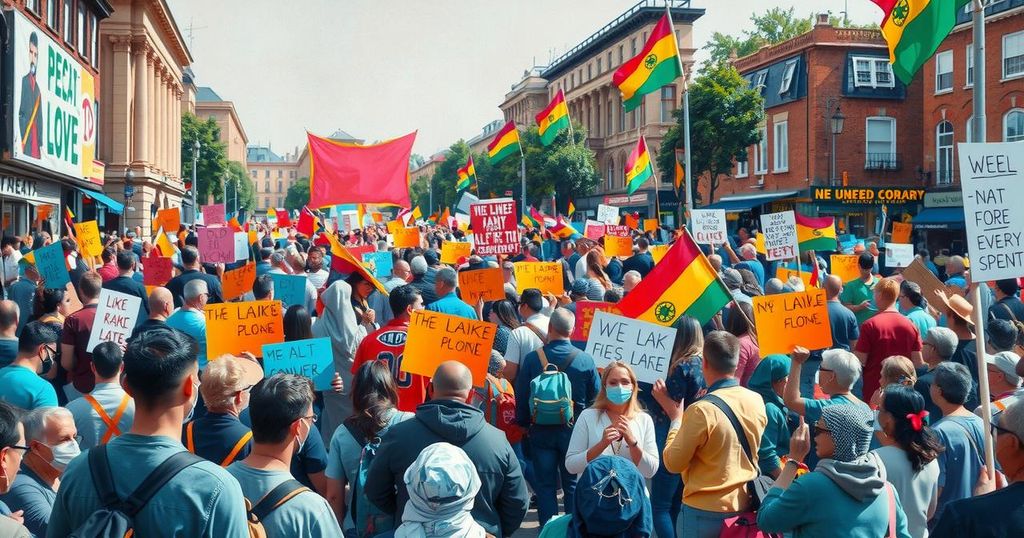A Global Wave of Anti-Government Protests Since 2016

Since 2016, the world has experienced substantial anti-government protests driven by issues like economic inequality and corruption. Key examples include the Candlelight demonstrations in South Korea, the Social Outburst in Chile, farmer protests in India, and recent anti-Semitism protests in Germany. Each movement underscores the need for political and social reform, illustrating the potency of civic engagement.
Since 2016, there has been a notable surge in widespread anti-government protests that have mobilized millions across the globe. These demonstrations have been spurred by various issues, including economic inequality, political repression, corruption, and demands for democratic reforms. This article utilizes data from Statista to examine some of the most significant anti-government protests in recent years.
The Candlelight Demonstrations in South Korea from 2016 to 2017 constituted a pivotal moment in the nation’s democracy. They arose in response to a political scandal involving former President Park Geun-hye, who was revealed to have allowed her adviser, Choi Soon-sil, to influence government affairs illicitly. The peaceful protests, uniting millions of citizens, culminated in the president’s impeachment and removal, marking a historic advance for South Korean democracy.
In October 2019, protests in Santiago, Chile, ignited over a modest subway fare increase but rapidly evolved into a significant social uprising known as the “Estallido Social” (Social Outburst). The demonstrations transcended the transit issue to expose profound economic disparities, social injustices, and widespread discontent with the political landscape, becoming a critical moment in modern Chilean history.
In India, a large-scale protest in 2020 saw farmers primarily from Punjab, Haryana, and Uttar Pradesh rally against three newly enacted agricultural laws. These laws aimed to liberalize the agricultural sector, provoking fears of corporate exploitation and jeopardizing existing farmer protections. Consequently, this movement escalated into a nationwide outcry, garnering international attention and support.
The latest notable protests against anti-Semitism occurred between 2024 and 2025, when thousands gathered in Berlin to oppose the rise in anti-Semitic violence and rhetoric. Organized by various civil society groups, religious institutions, and political entities, the protests echoed powerful slogans such as “Never Again is Now” and “No Place for Hate.” This movement resonated throughout the nation, as similar marches took place in major cities including Hamburg, Frankfurt, Munich, Cologne, and Leipzig.
In conclusion, recent years have witnessed a significant rise in anti-government protests worldwide, driven by diverse social and political grievances. The Candlelight protests in South Korea, the “Estallido Social” in Chile, the farmer protests in India, and the anti-Semitism demonstrations in Germany exemplify citizens’ mobilization against perceived injustices. Each of these events reflects a growing demand for political accountability, social equity, and the protection of human rights, showcasing the power of collective action in initiating change.
Original Source: globalsouthworld.com







